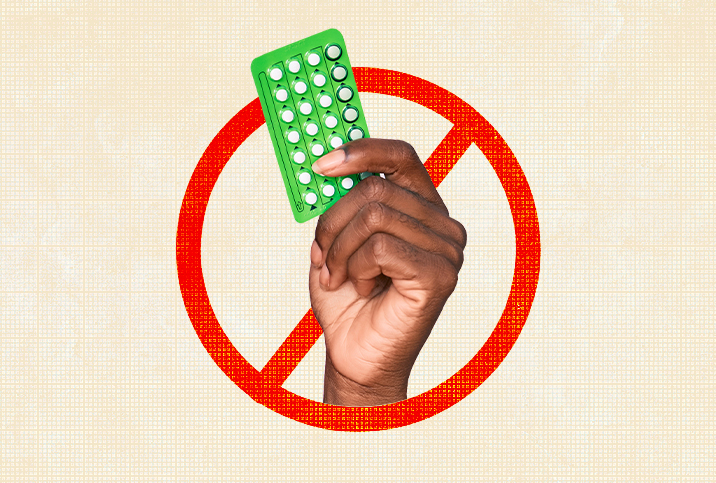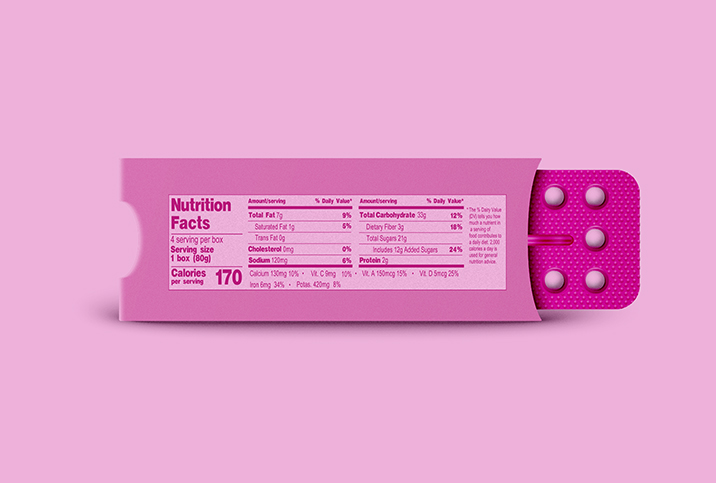Are There Risks to Skipping Your Period With the Birth Control Pill?

Skipping your period on the combined birth control pill is completely fine. Usually, this is done by skipping the sugar or placebo pills and going straight to the next pack. Depending on the package, this would mean disregarding the last seven pills or the last four pills, although some combination pill packages don't contain any placebo pills.
If you are taking the progestin-only pill, you cannot skip your period by taking the pills back to back unless you switch to the combined pills or use another medication, such as norethisterone. If you choose to skip your period continuously, you will need extra pills.
"This means that you will end up using four months of pills in three months," explained Monte Swarup, M.D., a board-certified OB-GYN in Arizona and the founder of HPD Rx. "You have to consult your healthcare provider to get an appropriate prescription."
Skipping your period once in a while on the pill is no longer considered an uncommon phenomenon, but whether you can do so indefinitely remains a subject with conflicting views. Mayo Clinic suggests taking some time off from skipping, while other medical resources recommend skipping once every three to four months. On the other hand, some women have been able to successfully skip their period for years on the combined pill.
With all this conflicting information, we asked the experts whether this is safe to do in the long term and the potential side effects.
Skipping your period in the long term
According to Swarup, skipping your period indefinitely is safe.
Sophia Yen, M.D., M.P.H., co-founder and CEO of Pandia Health, an online birth control service based in California, said this practice is fine as long as you've been checked out for any blood clot disorders that may run in your family, although the overall risk of blood clots on the pill is quite small. Only 1 in 3,000 women per year who are taking birth control pills develop a clot, but for women with thrombophilia or a history of thrombosis, the risk is substantial.
How often you choose to skip the withdrawal bleed is completely up to you, Yen explained.
"Some women on the IUDs don't bleed for years," she said.
Laura Purdy, M.D., an OB-GYN based in Tennessee and the chief medical advisor at Wisp, a women's sexual and reproductive telehealth provider, also said there should be no long-term concern over continuing to skip your period.
"If you have any concerns about doing so, I recommend that you speak to a licensed medical professional in your area," she added.
Benefits of skipping your period
Skipping your period can have various advantages.
According to Cleveland Clinic, using hormonal methods to skip your periods decreases your risk of certain types of cancer, such as ovarian and uterine cancers. In addition, doing so can prevent ovarian cysts from forming or help to eliminate any cysts that you currently have.
You also have the choice to opt out of your period if you have an upcoming wedding or vacation.
"In addition, having a stable hormone level—versus up and down without the hormone, or three weeks up and one week down with most pills—can benefit acne, depression and migraines," Yen added.
Potential side effects of skipping periods
Some women may experience breakthrough bleeding, especially in the first few packets.
In the event that you experience breakthrough bleeding, Yen advised that if you have already taken at least 21 days of active pills before then, you can stop taking the pills for four days so you have a withdrawal bleed and "reset" the uterus.
"On day five, start taking the active pills whether or not you are still bleeding," she said. "This should reset the uterus and allow you to build on a clean slate."
Most cases of breakthrough bleeding resolve on their own, and taking your pill at the same time every day can help to minimize this occurrence. If you find that you are still experiencing breakthrough bleeding, it may be best to consult your healthcare provider. For some people, changing the combination of the hormones estrogen and progestin can help.
"In some cases, it may be the progestin you are on," Yen noted. "Desogestrel and drospirenone make it less likely to have breakthrough bleeding."
There might also be a slightly increased risk of breast cancer from the longer exposure to hormones. However, the American College of Obstetricians and Gynecologists (ACOG) reports that the overall risk of breast cancer among hormonal contraceptive users is relatively low.
Alternatives for skipping your period
You can use other methods to skip your period over the long term. Swarup listed the following:
- Progestin-releasing intrauterine device (IUD)
- Progestin injection or implant
- A contraceptive insert, such as the NuvaRing
"However, there is varying efficacy for each of the regimens," Swarup said.
If you would like to skip your period for the long term, consulting your healthcare provider about the risks and benefits of all the choices is the best place to start.


















